June 8, 2015
Proximity determines how middle managers copy bosses’ unethical behaviour
 Middle managers mirror their bosses’ unethical behaviour, regardless of how ethical they are themselves, claims new research from Rotterdam School of Management, Erasmus University. The research, conducted in partnership with Cambridge University, shows that in cases of unethical leadership at the top of an organisation, middle managers will treat their subordinates unfairly if the social and spatial distance between them and the top management is low. This can lead to employee dissatisfaction, lower organisational commitment and increased employee turnover. In contrast, the effect is reversed if the social and spatial distance between managers and top management is high. Middle managers, who are unfairly treated by their bosses, will treat their employees more fairly if, for example, they are based in different offices or buildings from their managers, and the social distance is high.
Middle managers mirror their bosses’ unethical behaviour, regardless of how ethical they are themselves, claims new research from Rotterdam School of Management, Erasmus University. The research, conducted in partnership with Cambridge University, shows that in cases of unethical leadership at the top of an organisation, middle managers will treat their subordinates unfairly if the social and spatial distance between them and the top management is low. This can lead to employee dissatisfaction, lower organisational commitment and increased employee turnover. In contrast, the effect is reversed if the social and spatial distance between managers and top management is high. Middle managers, who are unfairly treated by their bosses, will treat their employees more fairly if, for example, they are based in different offices or buildings from their managers, and the social distance is high.













 TechNorth, the Manchester based technology hothouse devised as a regional counterbalance to London, is held in higher regard than the capital’s flagship TechCity development, according to research from recruitment firm Robert Half. The study of IT decision makers across the UK claims that the vast majority would prioritise working with Northern firms over their London counterparts, with 87 percent either ‘highly likely’ or ‘somewhat likely’ to place work with IT businesses in the TechNorth hub rather than those in TechCity London given the choice. The figure is 100 percent for IT leaders based in the North and to 95 percent for those in Scotland. More surprisingly, 80 percent of those based London and the South East said they would prioritise TechNorth, as did 75 percent in the South West and Wales.
TechNorth, the Manchester based technology hothouse devised as a regional counterbalance to London, is held in higher regard than the capital’s flagship TechCity development, according to research from recruitment firm Robert Half. The study of IT decision makers across the UK claims that the vast majority would prioritise working with Northern firms over their London counterparts, with 87 percent either ‘highly likely’ or ‘somewhat likely’ to place work with IT businesses in the TechNorth hub rather than those in TechCity London given the choice. The figure is 100 percent for IT leaders based in the North and to 95 percent for those in Scotland. More surprisingly, 80 percent of those based London and the South East said they would prioritise TechNorth, as did 75 percent in the South West and Wales.
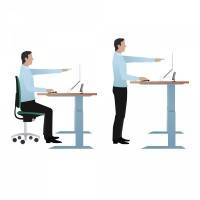 A new study published yesterday in the British Journal of Sports Medicine claims that office workers spend far too much time sitting, are suffering from a range of conditions and illnesses as a result and so should be encouraged to spend up to half of each working while standing. The report,
A new study published yesterday in the British Journal of Sports Medicine claims that office workers spend far too much time sitting, are suffering from a range of conditions and illnesses as a result and so should be encouraged to spend up to half of each working while standing. The report, 

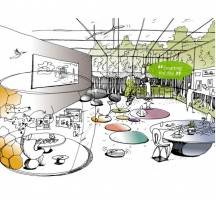


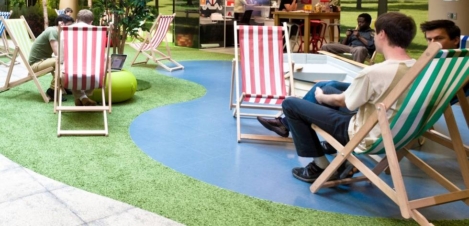
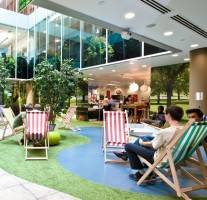
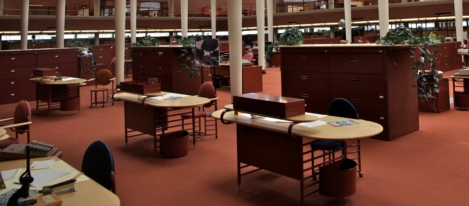











June 2, 2015
The bonds that link work with place are loosening day by day
by Paull Robathan • Comment, Flexible working, Technology, Work&Place
More →